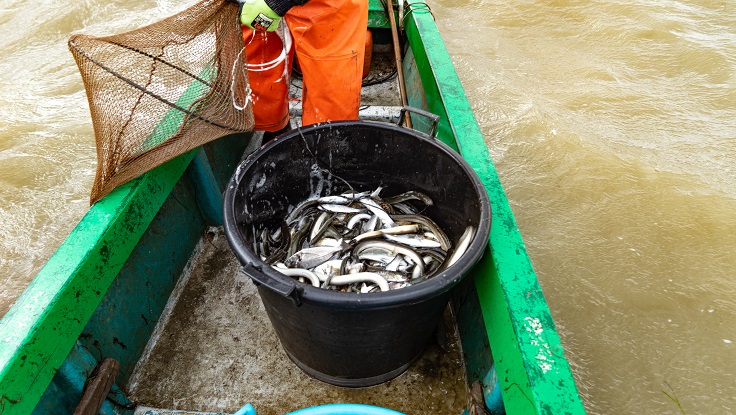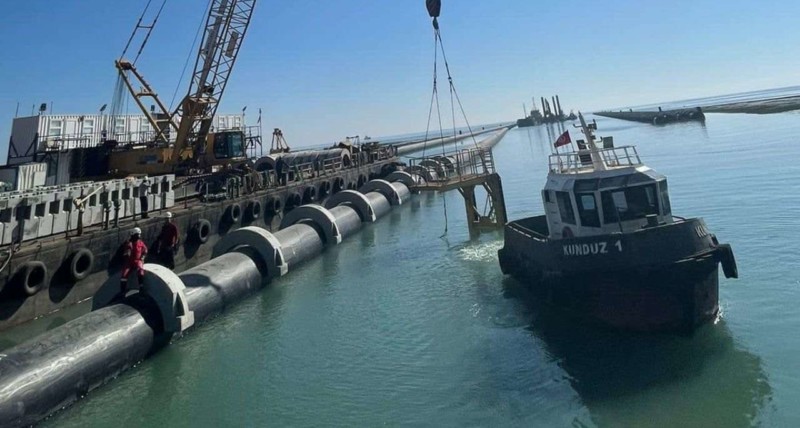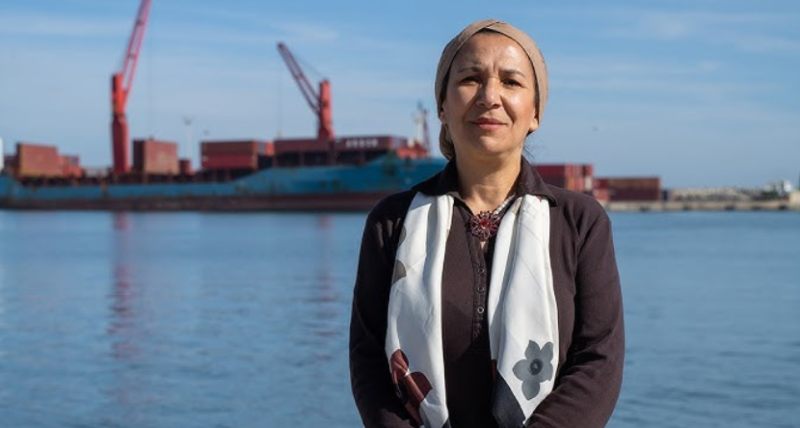20 Countries and the European Union Take a Major Step Forward for Sustainable Fisheries and Aquaculture
Twenty countries and the European Union made a significant advancement in promoting sustainability in fisheries and aquaculture by adopting 17 critical decisions, including 12 binding recommendations, during the forty-seventh session of the General Fisheries Commission for the Mediterranean (GFCM) of the Food and Agriculture Organization of the United Nations (FAO), held in Rome, Italy.
The GFCM is the regional fisheries management organization empowered to issue binding recommendations on the development of fisheries and aquaculture in the Mediterranean and Black Seas. During its annual session, GFCM members engaged in key discussions to review and adopt proposals for recommendations and resolutions, all based on the best available scientific advice.
« This annual session marked the culmination of a year of intensive and collaborative work, highlighting GFCM members’ ongoing commitment to addressing the increasing challenges faced by the fisheries and aquaculture sectors in our region, » said Miguel Bernal, Executive Secretary of the GFCM.
The Health of Seas and Fisheries Productivity
The percentage of overexploited fish stocks in the Mediterranean and Black Seas has dropped to its lowest level in a decade (under 60 percent), yet fishing pressure remains twice the sustainable level, as highlighted by the GFCM’s flagship publication, The State of Mediterranean and Black Sea Fisheries 2023. To address this issue, the GFCM is taking a comprehensive approach to sustainable fisheries management.
Among the decisions made this week is the strengthening of management measures for many of the GFCM’s priority species, including European eel, red coral, pink dentex, European hake, Norway lobster, sprat, turbot, veined rapa whelk, spiny dogfish, and sturgeon.
In the Adriatic Sea, a rigorous management strategy evaluation process led to a historic recommendation to establish catch control rules by species and annual catch limits for sardines and anchovies—a shift from the previous joint catch limits and a move towards ecological sustainability and economic stability.
Meanwhile, in the Black Sea, a slight increase in the catch limit for turbot, a critical species whose fishing mortality has decreased threefold and biomass has tripled, was adopted. This species is now approaching sustainability thanks to a multiannual management plan implemented in 2017. This decision aims to encourage fishers and discourage illegal, unreported, and unregulated (IUU) fishing, while enhancing data collection on fishing effort and discards and introducing new technical measures to reduce bycatch.
A New Regulated Fishing Area in the Mediterranean
Spatial management was also a focal point, as countries agreed to establish a regulated fishing area in the Otranto Strait in the Adriatic Sea. This decision sets up a core area where bottom trawling is prohibited to protect vulnerable marine ecosystems, including bamboo coral, and to boost marine biological productivity by protecting essential fish habitats, such as those for red shrimp and giant red shrimp. Additionally, a buffer zone was created, where fishing activities are regulated.
This regulated fishing area is the eleventh established by the GFCM, with a size comparable to that of a country like Luxembourg.
Supporting Sustainable Aquaculture Development
Aquaculture was another crucial topic during the discussions, with countries commending progress toward the sector’s sustainable development and the extensive assistance programs implemented across the region over the past year.
In response to emerging diseases driven by climate change that threaten aquaculture productivity and growth, countries decided to create a network to monitor aquatic diseases and minimize risks associated with trade.
Principles for responsible investment in aquaculture were also adopted to make the sector more attractive to investors and highlight its role in food security.
Progress in Compliance and Enforcement to Combat IUU Fishing
The annual session prioritized strengthening compliance to ensure that member countries effectively implement GFCM decisions, supporting their commitments to the development and regulation of fisheries and aquaculture activities.
Significant progress has been made in recent years, with the GFCM playing a pivotal role in helping numerous countries revise their national legislation to specifically target IUU fishing and implement GFCM measures, such as the regional action plan against IUU fishing within the GFCM area.
Thanks to these efforts, Albania, Algeria, Egypt, Morocco, Montenegro, Türkiye, and the European Union and its Member States received the compliance award at the annual session for integrating GFCM decisions into their legal frameworks and reporting rigorous data.
Last year marked the beginning of a new phase toward a more modern framework for closer monitoring of GFCM decision compliance by countries. The session extensively discussed how to equip GFCM countries to make swift progress in this area. Countries emphasized the need to improve compliance assessments and implement monitoring, control, and surveillance tools, such as inspection programs and vessel observation.
Next Steps
All decisions adopted during this annual session aim to ensure the long-term sustainability of the fisheries and aquaculture sectors.
« Looking to the future, I am confident we can aim higher and face the challenges ahead together. I would also like to recognize and congratulate those who collectively contribute to our efforts—the experts, administrators, fishers, and aquaculture producers—for their hard work and commitment to our increasingly ambitious goals, as the ultimate beneficiaries of our decisions, » said Fouad Guenatri, Study and Synthesis Officer, Ministry of Fisheries and Marine Resources, Algeria, and Vice-Chair of the GFCM.
Source: Espace Manager




